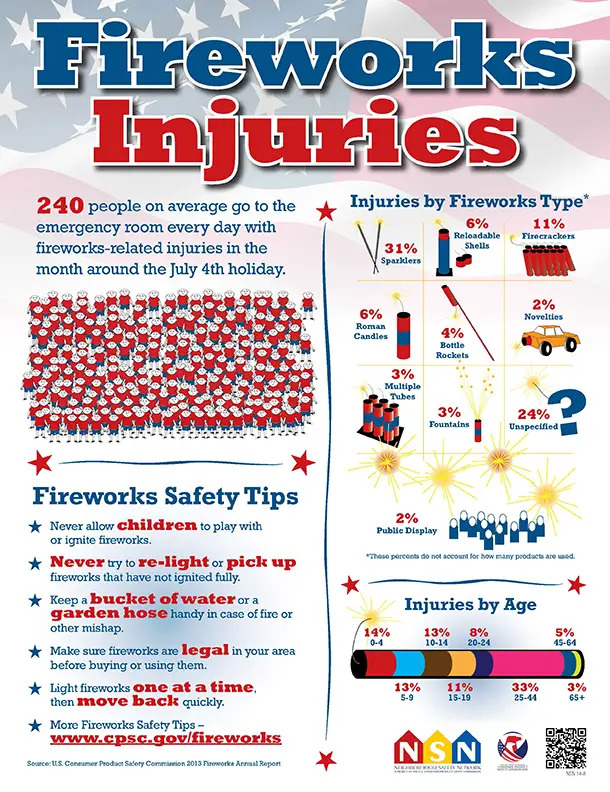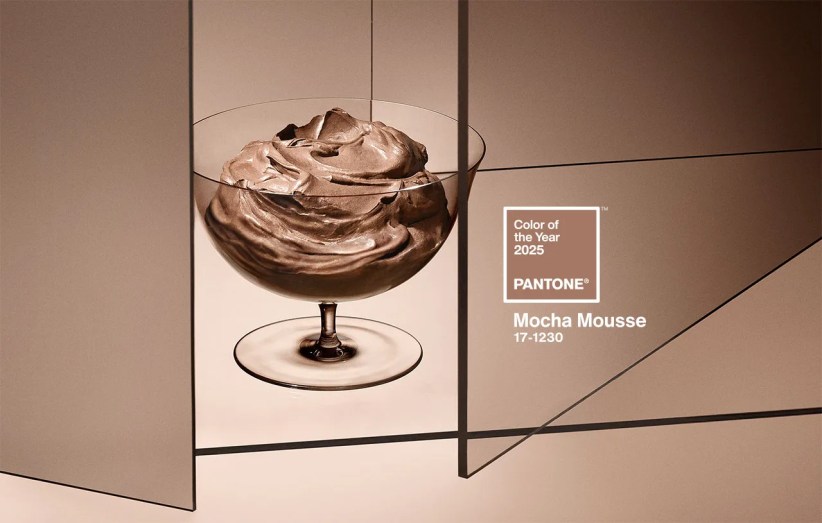Many people celebrate the Fourth of July with fireworks, and not just by viewing professional displays. If you choose to light your own, follow these safety tips for using fireworks.
Often, when thinking of the Fourth of July, one of the first things that come to mind are big, beautiful fireworks, with vibrant colors that light up a summer night's sky. In the midst of all this holiday grandeur, it is important to understand fireworks safety and how to prevent tragedy during your July 4th celebration.
In 2013, 65 percent of all firework injuries occurred in the 30 days surrounding July 4th. The majority of these injuries occurred simply because of the malfunction or improper use of legal and illegal fireworks.
Here are some ways fireworks can malfunction:
- Inconsistent flight paths
- Tip-over incidents
- Early or late ignitions
- Debris and blowouts
You, your friends, and your family can be put at risk by:
- Purchasing and using illegal fireworks
- Letting children use fireworks, including sparklers and firecrackers
- Creating or modifying any fireworks
- Igniting fireworks too close to someone or something
- Setting off fireworks improperly
Disclaimer: The below video demonstrates—using mannequins—how people who use fireworks can be injured if a firework malfunctions.
Small fireworks, such as bottle rockets, sparklers, and small firecrackers, can appear harmless to children, but during the 30 days surrounding July 4th, these kinds of fireworks injured an estimated 1,000 children younger than 5.
| Did you know sparklers can burn hot enough to melt copper? A sparkler can burn at 2,000 degrees Fahrenheit or hotter! That's as hot as a blowtorch! |
If you do decide to buy legal fireworks, be sure to take the following safety steps:
-

Click image to enlargeNever allow young children to play with or ignite fireworks.
- Avoid buying fireworks that come in brown paper packaging; often, this can often be a sign that the fireworks were made for professional displays and could pose a danger to consumers.
- Never have any portion of your body directly over a fireworks device when lighting the fuse.
- Move away to a safe distance immediately after lighting.
- Never try to re-light or pick up fireworks that have not gone off or fully functioned.
- Never point or throw fireworks at another person.
- Keep a bucket of water or a garden hose handy in case of fire or other mishap.
- Light one item at a time, then move away quickly.
- After fireworks have gone off and fully functioned, douse the spent device with plenty of water from a bucket or hose before discarding, to prevent a trash fire.
- Make sure fireworks are legal in your area before buying or using them.
Know the risks, prevent the tragedies, and have an injury-free July 4th!
Courtesy the United States Consumer Product Safety Commission





















